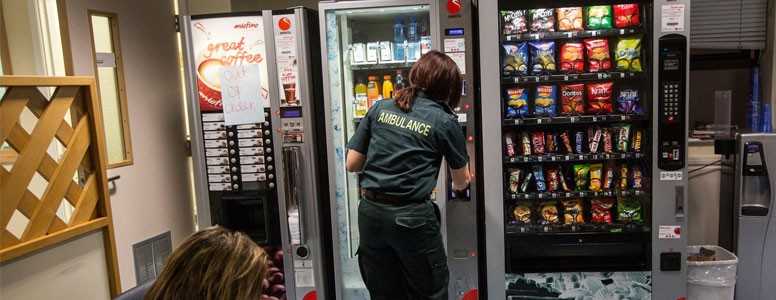The NHS has proposed plans to ban sugary drinks from hospital vending machines to cut obesity and rising rates of type 2 diabetes.
Should the plans go ahead, England would be the first country in the world to take action across its health service in this way, according to NHS England.
An alternative to an outright ban would see the introduction of a 20 per cent fee to vendors of the sugar-sweetened drinks, with the proceeds going to expanding staff health and wellbeing.
Speaking to the ukactive National Summit, NHS chief executive Simon Stevens said: “Confronted by rising obesity, type 2 diabetes and child dental decay, it’s time for the NHS to practice what we preach.
“Nurses, visitors and patients all tell us they increasingly want healthy, tasty and affordable food and drink options. So like a number of other countries we’re now calling time on hospitals as marketing outlets for junk food and fizzy drinks.
“By ploughing the proceeds of any vendor fees back into staff health and patient charities these proposals are a genuine win/win opportunity to both improve health and cut future illness cost burdens for the NHS.”
Subject to consultation the drinks affected would be any beverage which has added sugar including fruit juices, sweetened milk-based drinks and sweetened coffees. All of these drinks are exempt from the government’s sugar tax.
The NHS proposal, should it get the go-ahead, would be introduced next year; the government’s levy will not be enforced until 2018.
Patients, carers, NHS staff, members of the public and suppliers will be asked their thoughts on the proposals during a consultation period, which closes on January 18.
Bans on drinks high in sugar have already been tried out on some NHS premises, including the Walton Centre NHS Foundation Trust in Liverpool.
The two-month trial, which saw the removal of all sugary drinks from cafes and restaurants on site, did not lead in a drop to drink sales, NHS England said.
Picture: The Guardian
What's new on the forum? ⭐️
Get our free newsletters
Stay up to date with the latest news, research and breakthroughs.








